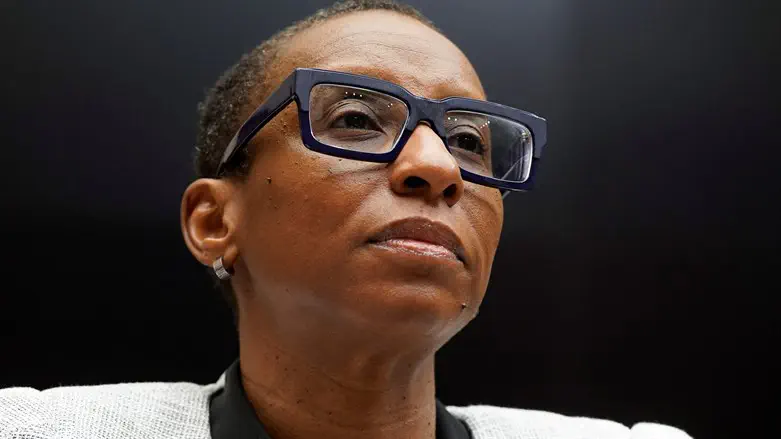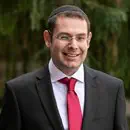
Jewish organizations and students welcomed the resignation of former Harvard President Claudine Gay following her failure to respond to antisemitism on campus.
The Harvard Jewish Alumni Alliance (HJAA), which represents thousands of Jewish Harvard alumni, stated that Gay's resignation ends an "unfortunate chapter” in Harvard's history.
HJAA spokesman Roni Brunn said: “In her repeated failures to condemn calls for complete and utter obliteration of Jews, Claudine Gay tacitly encouraged those who sought to spread hate at Harvard, where many Jews no longer feel safe to study, identify, and fully participate in the Harvard community."
HJAA wrote on X (formerly Twitter): "It’s our hope that Harvard’s next President begins their term by loudly and clearly stating that antisemitism has absolutely no place on campus, that strong action will follow to make that commitment a reality, and that the institution will return to its roots as a world-renowned center of learning and research rooted in civil discourse and academic integrity."
The Simon Wiesenthal Center (SWC) also welcomed Gay's resignation.
“Harvard University has a long way to go to make Jewish students feel safe, “ said Rabbi Abraham Cooper, SWC Associate Dean and Global Social Action Director. “President Gay’s failures are symptomatic of deeper problems including antisemitism in many of America’s elite universities. Let’s hope they all open a new chapter based on justice and equality for all,” he added.
Harvard junior Alex Bernat, a Jewish student at the university, told The Boston Globe that he hopes Gay's resignation will lead to a larger reckoning with the antisemitism crisis on the campus.
Harvard Crimson Editorial editor Alexander L.S. Bernat, another Jewish student, told the student newspaper: “I think — as a Jewish student on campus, as someone who cares about academic integrity — this kind of went on for too long."
Gay courted controversy starting with her initial response to the Hamas massacre of October 7, including her initial refusal to condemn the worst massacre of the Jewish people since the Holocaust or the 34 Harvard student groups that published a statement in the immediate aftermath of the massacre blaming Israel for the Hamas slaughter of over thousand of its own citizens.
On October 18, an Israeli student was assaulted by anti-Israel activists, leading to an outcry over the university's failure to discipline the attackers and tolerance for antisemitic behavior on campus.
The antisemitic controversy came to a head on December 5, when Gay, along with MIT President Sally Kornbluth and University of Pennsylvania President Liz Magill, testified before a congressional hearing on the issue of antisemitism on college campuses.
All three university presidents gave similar answers in which they failed to unequivocally condemn antisemitism or even calls for genocide against Jews. In response to a question about whether such calls for genocide violate Harvard's code of conduct, Gay responded that this depended on the "context" and whether or not the genocidal language turned into action.
Calls for Gay's resignation began immediately after this hearing. These calls grew as reports surfaced of numerous allegations of plagiarism in more than half of her published papers, including her dissertation.
While the Harvard board continued to support Gay, the pressure for her resignation or dismissal in response to both scandals continued to grow, and wealthy donors began announcing they would cease donating to the university. Harvard is estimated to have lost $1 billion in donations over these controversies.
On January 2, Gay announced her resignation, a day after fresh plagiarism accusations surfaced. University Provost Alan M. Garber will serve as interim president until a full-time president is selected to replace Gay.
